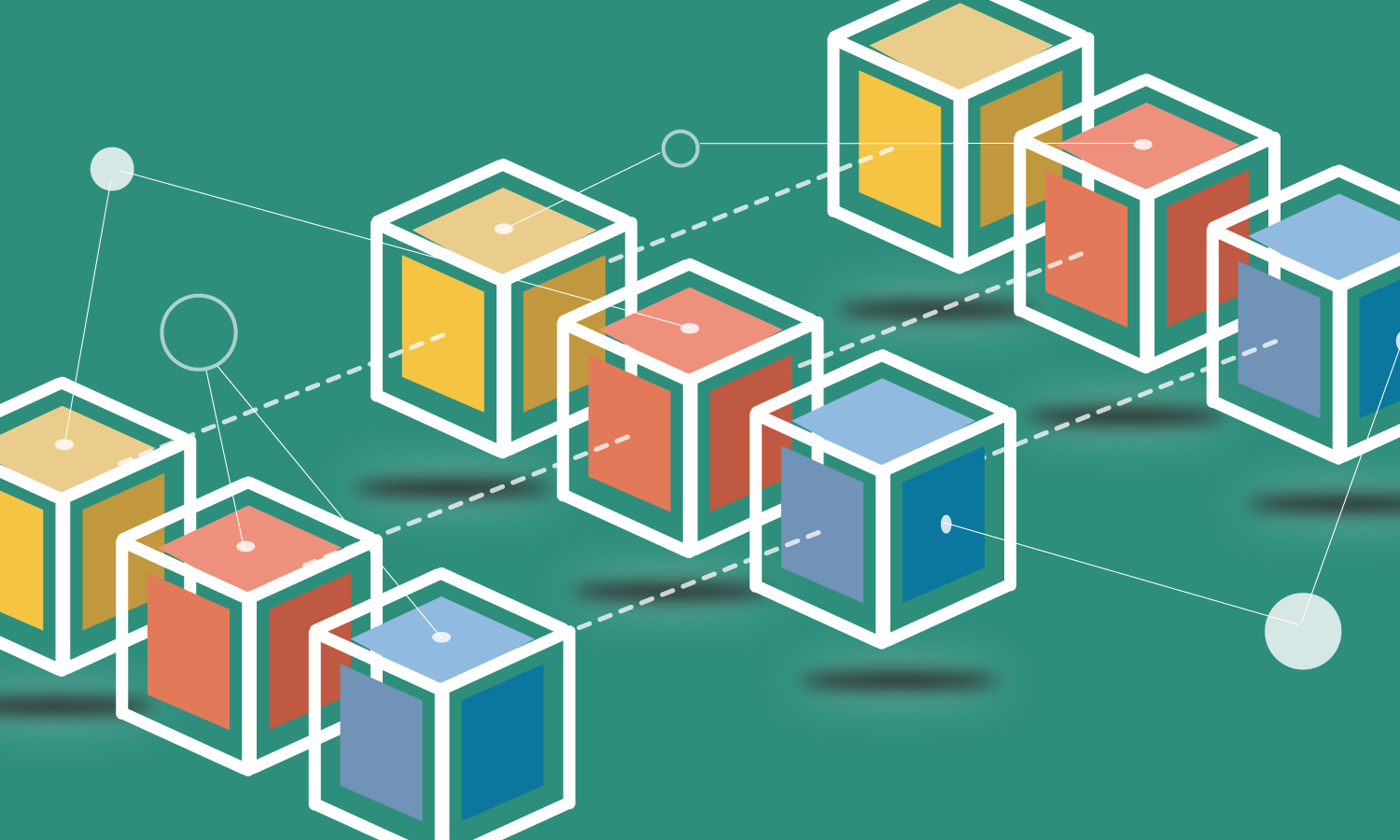What if there was a system that could securely track assets and transactions within a business network? What if you could see into the operations of 100 other business partners? Imagine the efficiencies it could bring across your supply chain! This is blockchain.
What is Blockchain Technology?
Essentially, it is a chain of digital blocks that act like an online ledger. It allows for the secure access and storage of data, but also gives relevant parties the transparency needed for collaboration.
In a blockchain, each new block of data is verified by a previous block before it can be added to the chain. Hash pointers do this by pointing to information stored somewhere else. This authentication system makes it it difficult for tampering, because in order to keep everything consistent, you would have to alter all the blocks till you reach the beginning. Even then, you would not be able to alter that original block.
In addition to encryption, the blockchain is a network of database “nodes” spread all over the world, so there are many copies of the same data. This ensures information security in an age where cyber attacks are growing.
Another major benefit is that you can access accurate, real-time data and trace details efficiently. Sound familiar?
While blockchain has generated a lot of interest from the financial industry, the supply chain can benefit from this technology as well.
In fact, some established companies have already tested its performance and seen its power. Let’s take a look at 3 companies pioneering the way for blockchain application in supply chain.
1. Walmart
Earlier this year, Walmart had an E. Coli outbreak in romaine lettuce where over 200 people were affected and dozens were hospitalized.
If Walmart’s tracing system was more efficient, they could have pulled the contaminated products off the shelves earlier, and fewer people would have been affected.
In light of this, Walmart took the time to re-examine their recall practices. By September 2019, Walmart is requiring all direct suppliers of leafy greens to adopt blockchain technology. This is an effort to improve end-to-end tracing back to the farms the products came from. Suppliers must start collecting information (like field location and harvest time) and upload it to Walmart’s blockchain.
Using blockchain and digital data storage, suppliers can quickly identify the source of infected food and stop the supply to consumers. In fact, Walmart has been piloting this technology with IBM for months.
The result is being able to pinpoint issues in the food chain efficiently, while minimizing the losses to retailers and suppliers when a recall occurs. Under a blockchain system, Walmart could trace the origin of a bag of mangoes within 2.2 seconds. Whereas in traditional systems that rely on many individual databases, it could take over a week.
2. British Airways
British Airways tested the use of blockchain technology in managing flight information. They hoped to coordinate the flight data customers saw across gate monitors and mobile devices and reduce conflicting information.
When there are flight delays, passengers usually check their apps. But that data is not always the same as what you hear from airline agents or see on airport display systems because the sources are not in sync.
British Airways also tested this technology with other airlines. They found that synchronized information could be shared when they all parties upload their flight operations to the blockchain. This eliminated confusion and got passengers moving smoothly at the gates.
Besides that, but blockchain could also guarantee the security of passenger information. A few months ago, there was a breach that compromised up to 400,000 card payments of clients booking online.
But this could have been prevented if British Airways used blockchain to store data. The data would never be stored in a single place. But rather, it would be spread over a vast network, making it impossible to disclose without a user’s consent.
3. Maersk
As the world’s largest shipping company, it is no wonder that Maersk is taking advantage of blockchain and applying it to the global supply chain.
Blockchain technology provides an audit trail that allows businesses to exchange information securely. Collaboration and visibility are important in this age of global trade, and blockchain provides an efficient means of communication.
Maersk and IBM unveiled a blockchain technology called TradeLens, which allows all parties (such as shippers, port operators, and last-mile delivery partners) to access a unified view of shipment data.
Blockchain is a useful for capturing the millions of shipping events that Maersk is responsible for.
To Conclude:
The digital supply chain is transforming the industry, allowing for increased operational transparency and enhanced security.
As more companies adopt blockchain technology, it is becoming a clear solution for many supply chain issues. The companies we looked at today model innovative supply chain management and pave the way for others to follow.



